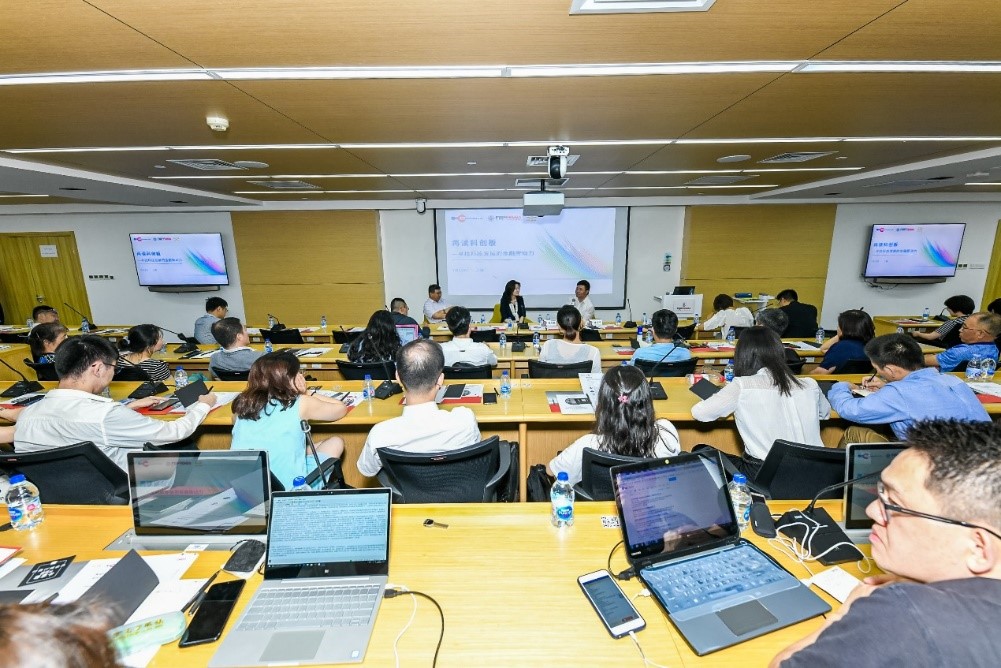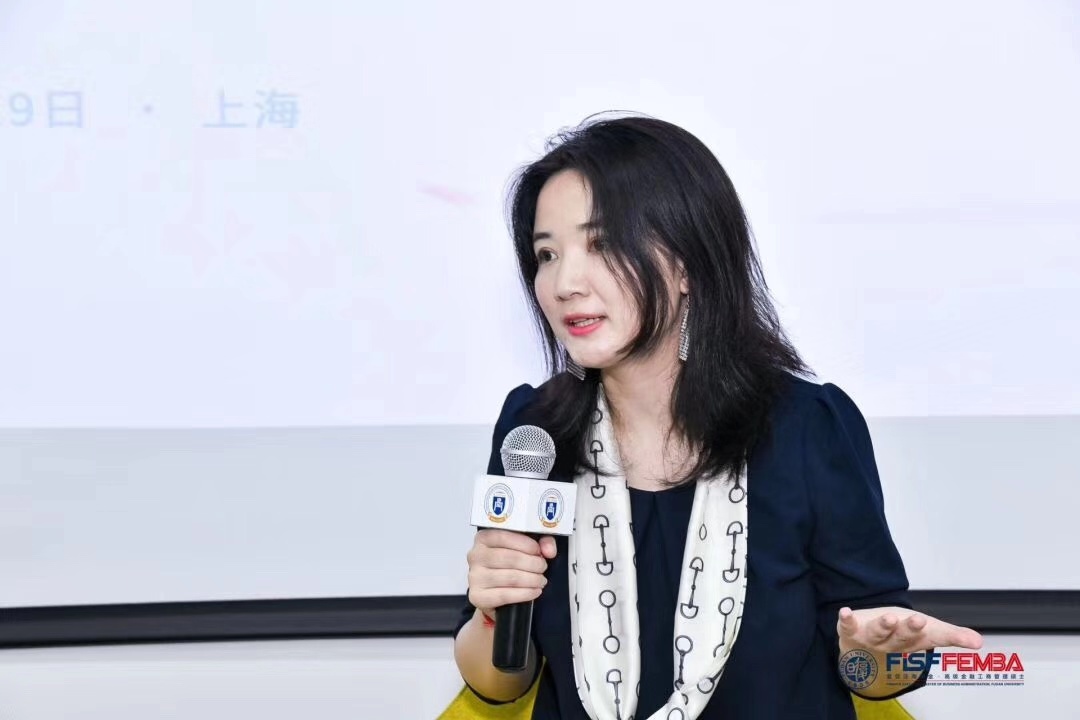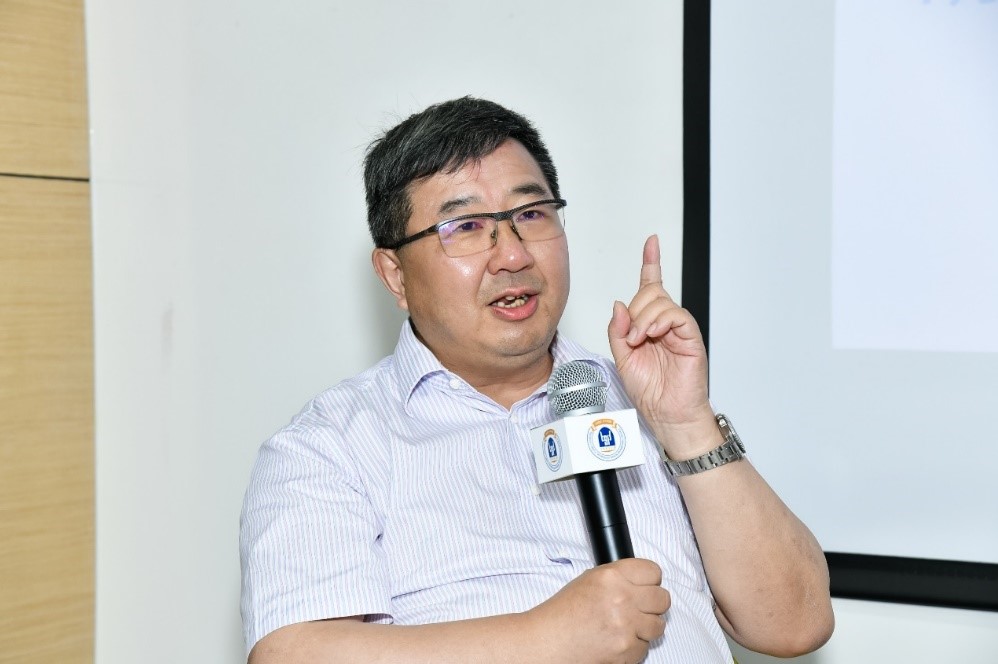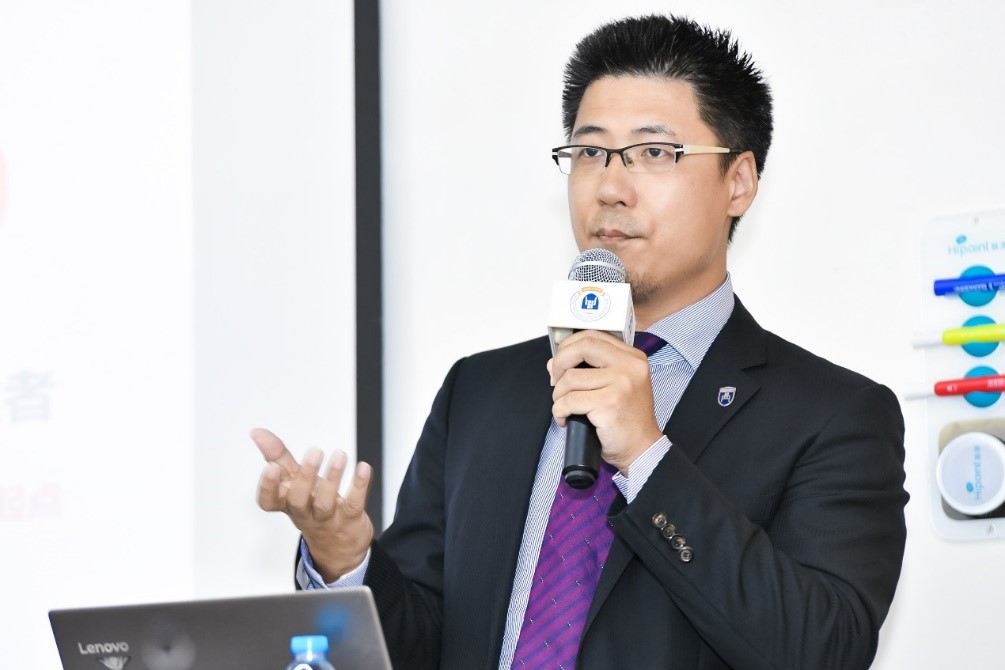
-
 86-21-63895588
86-21-63895588
-
 No.1, Lane 600, Nanchezhan Road, Huangpu District, Shanghai 200011
No.1, Lane 600, Nanchezhan Road, Huangpu District, Shanghai 200011
Release time:2019-07-29

Recently, the FEMBA program FISF cooperated with FT Chinese Edition and the Economist Reading Club to hold a forum titled “FT Innovation Dialogue”. The dialogue invited Zhang Junyi, Managing Partner of NIO Capital, Gui Haoming, Chief Marketing Expert of SWS Research, and Xu Jin, Chief Editor of FT Chinese Finance Edition, Founder of the Economist Reading Club, and a first year student of the FEMBA program of FISF, to share their latest speculations on hot issues like the future development of the STAR Market and to give forecasts and analysis for new investment opportunities in 2019.

▲ Chief Editor of FT Chinese Finance Edition, Founder of the Economist Reading Club
and a student of the FEMBA program of FISF for the first year
While hosting the dialogue, Chief Editor Xu Jin indicated it was extraordinarily meaningful that the activity was held on the last trading day before the launch of the high-profile STAR Market. Since the proposal was made, it has taken merely 220 days for the STAR Market to launch. This new exchange represents a substantial reform for the Chinese capital market and, therefore, it is extremely important to understand the motivation behind its establishment.

▲ Gui Haoming, Chief Marketing Expert of SWS Research
In the course of the discussion, Mr. Gui Haoming explained that the intent of the STAR Market was to build a whole new concept—different from the new OTC market and Second-board Market. Its establishment is meant to represent a push forward in Chinese economic integration, and has the potential to create a new “style” of economic development like the American NASDAQ. He predicted that the STAR Market will transform to an A-share ecosystem, and that the market will remain focused on how best to coordinate between the high demand for information disclosure and the confidentiality needs of enterprises.

▲Zhang Junyi, Managing Partner of NIO Capital
Mr. Zhang Junyi stated that the launch of the STAR Market could, on one hand, help attract technology enterprises to list on Chinese markets, while concurrently bringing mixed hopes and fears for private investors in the primary market. The promotion of this new registration system will be a powerful measure for financial openness in China as well as beneficial to market allocation of resources and giving full respect to market liberalization. This specifically means that there will be plenty of room for growth for tech companies that can’t expect to see profit in the short-term. One disadvantage, however, is that the capital market will not extend its wait for tech companies for too long a time. It’s quite realistic in this situation to question if the long-term development goal of profit can actually be achieved in an industry that often can’t see profit in the short-term.

▲ Lu Jingming, Assistant Director of the FEMBA Program of FISF
Lu Jingming expressed in his speech that FISF has gathered financial professors from top international business schools and introduced a new world-leading, action-learning method for the purpose of cultivating internationalized business leaders with a deep understanding of the financial mindset and the ability to observe and lead the future of the industry.